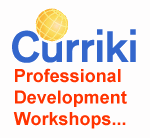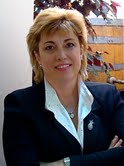By Kim Jones, Curriki executive director
 My trip to Qatar has been amazing and inspiring! As I prepare to depart, here are a few interesting conclusions from WISE 2011:
My trip to Qatar has been amazing and inspiring! As I prepare to depart, here are a few interesting conclusions from WISE 2011:
1. Education has to change. The skills children need in today’s world are extremely different than before. It is no longer about memorization, but instead about knowing how to learn all the time. Yes, there are certain skills that children need to know – how to read, do math, write, etc., but why memorize the presidents of the United States when that can be at your fingertips by simply searching the Internet? Much more interesting is understanding how the country developed and the chain of events that occurred to get us to where we are – and having an opinion that can be shared in a discussion.
2. Teaching will transition to be more like coaching. As we utilize technology tools to personalize learning, teachers will take on the role of coaching, not teaching per se. But it’s critical to give them the tools they need and continued professional development.
3. Children will become part of the learning process and contribute to the content and process. This is already standard in Scandinavia where schools operate very differently from here. For example, there are no desks and chairs – one-to-one computing, and project-based learning are already standard. And guess what? They have some of the highest PISA scores.
4. OER will become the norm. We will no longer utilize a set curriculum as this does not address personalized learning. Of course, for certain topics like math, lessons will be taught in a certain order as it logically builds, but children will continue to learn at different speeds.
5. Education requires political will from top down, and innovation needs to flourish from the bottom up.
6. Having a highly educated population is key to the economy. Studies have shown that for every $1 spent, you get $15 back. In developed countries like the UK and America, we spend about $100K per child, whereas in developing countries like parts of Asia, Latin America, and Africa these countries spend zero to $400 on a child in his or her lifetime. This must change.
Gordon Brown spoke yesterday and he was fantastic. When I lived in the UK, he was the prime minister and I have never seen him speak with such passion and clarity! I was so amazed, it was great, and he brought tears to my eyes as he related stories of specific children from countries around the world.
Almost half the world has little access to education. We should all be proud knowing that the OER resources we are creating are having a huge impact on teachers and children outside the United States and it really is making a difference with the children and teachers who need it most!











